Spring 2014 - I recently graduated from Cornell University, and I am planning on attending medical school in the fall. I have always been fascinated by the world of medicine, whether it be the inner workings of the human body or the interactions between doctor and patient. Although I have not yet begun a career in medicine, I have read a few books on the subject, and what follows are some of my favorites. Even if you are not planning a career in a medical field, you may find some of these titles interesting!
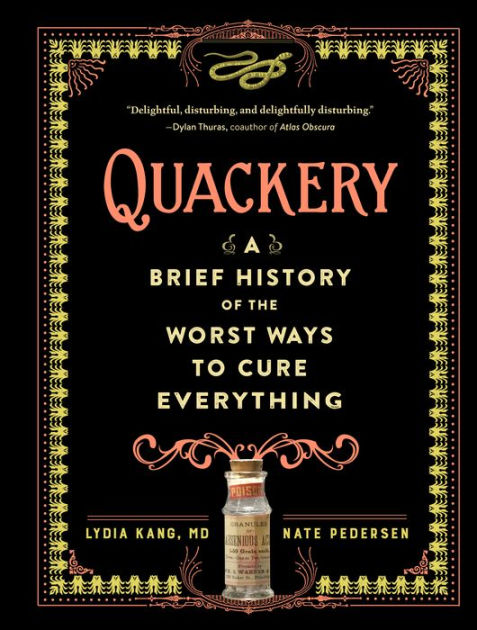
Quackery, by Dr. Lydia Kang and Nate Pedersen
This book was not what I anticipated, and I'm glad. I bought this, thinking it was going to be another book ripping on alternative and complimentary medicine, reinforcing my confirmation bias. Instead, it's a witty and introspective look at the history of medicine, exploring many of the unfortunate treatments used with the best of intentions. It includes bloodletting, lobotomies, and arsenic, among others. Honestly, I was laughing out loud at some of the ridiculous and insane things doctors used to do, while simultaneously terrified that people used to believe these things worked. Makes you wonder what we'll be laughing about in another hundred years?
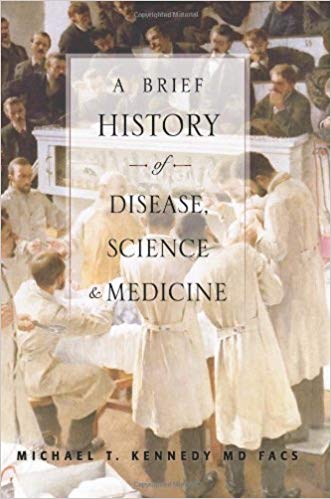
A Brief History of Science, Medicine, and Disease, by Michael Kennedy
Loved this book. Compared with other scientific fields, there's not much discussed between doctors on how the medical field evolved. This is an excellently-written and extremely enjoyable book that explores the history of medicine, from early practices to some modern advances. I learned about Osler and others, the changes in treatment of psych patients (and how it impacted the current homeless situation), and many other nuggets that help understand how far medicine has come, and even realize how far we have to go.

Bad Pharma, by Ben Goldacre
I read this during my residency interview season. It's much more involved and in-depth than "Bad Science," and you can tell the author is very passionate about the issues involved with the pharmaceutical industry. There's so much in this book. The side effects hidden by patients, the poor results skewed before showing physicians, it's not the most reassuring. He does provide insight into how big pharma can improve themselves. I think it's an excellent book for those in (and out) of the medical field, to help them think critically when reading research articles and questioning the status quo, whether drug-related or not.
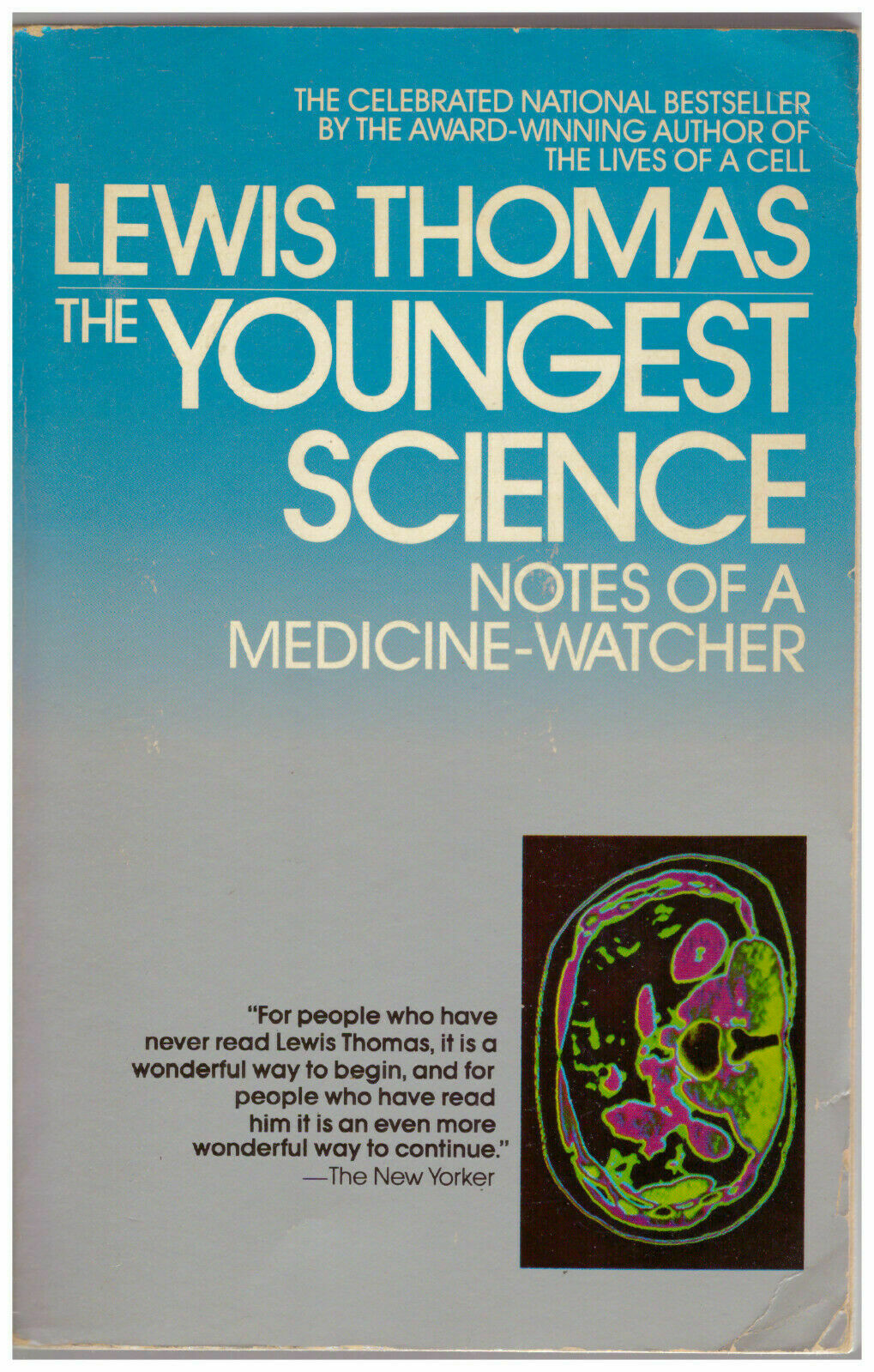
The Youngest Science, by Lewis Thomas
I loved this book so much. Dr. Thomas is a wonderful and fascinating writer and I hope to accomplish a sliver of what he did during his lifetime. Through different stories, he watches the evolution of medicine (AKA the youngest science) as a small boy with a physician father to his own path through medical training and beyond. He shows how one can hardly imagine where life will take them and what roles they might fill throughout their life. This book got me hooked on much of his other writing, which is also fascinating.
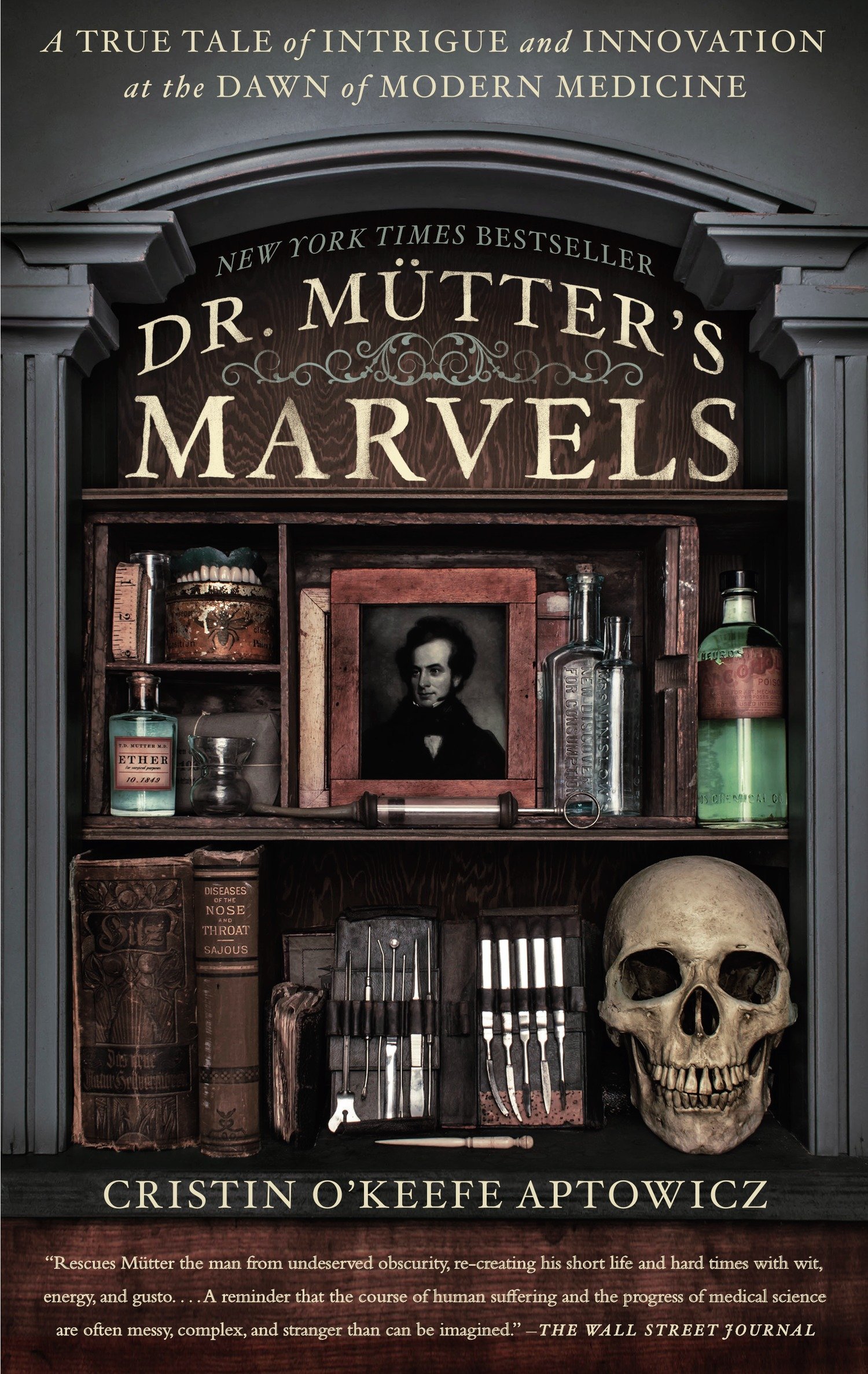
Mutter's Marvels, by Cristin O'Keefe Aptowicz
Holy crap. This book is amazing. I've been to the Mutter Museum a couple times, and I just thought Dr. Mutter was some doctor who had a crazy collection of medical "things" and now it's a museum. I had no idea he played such an integral role in the infancy of 19th century medicine, and specifically plastic surgery! I'm not one to usually read biographies but I couldn't put this book down. There is so much more to this man than his museum, and it gave me a new appreciation of the work he did while he was alive.

White Coat Investor
Have to give a shout-out to the starter book for physician financial planning. Sadly, despite our extensive medical training, physicians are not known for being financially savvy. This isn't the ultimate guide to makin' bank, but it's a good starting point no matter what level you're at.

Why We Get Sick, by Randolph Nesse and George Williams
This book is the original compilation on evolutionary medicine. What is evolutonary medicine? It's the idea that medical conditions should not be simply cured, but instead examined, to find the underlying cause. If you have a fever, is it a bad thing? Maybe a bacteria is causing your temperature to rise, and you should fight it! But what if it's a defense mechanism against an infection, and fighting the fever will prolong your infection? These are the questions that are examined in this book. The authors run through countless medical conditions, from simple illnesses to genetic conditions, and even diseases of modern society. One interesting section examines the question, "why can't we regenerate limbs?" This book has opened my eyes to the field of evolutionary medicine, and I hope that after reading it, you'll ask yourself, "Why do I get sick?"

The Story of the Human Body, by Daniel Lieberman
This book is a semi-update of "Why We Get Sick." The human body is not adapted for modern life, but instead adapted for life on the savannahs as it lived millions of years ago. Many of the diseases that we suffer from today are caused by an inability to adapt to a sedentary lifestyle full of overly nutritious food. Other books take the approach that we are doomed to suffer because of this imbalance, but Lieberman feels differently. Although we are not adapted for this lifestyle, we can still find ways to prevent these ailments instead of treating them when they arise. He discusses lower back pain due to our new bipedal lifestyle, and foot pain from wearing shoes instead of walking around barefoot. Instead of just treating with medicine and surgery, he suggests that we make changes to ergonomic designs, to work with the bodies we have to present the diseases we might get. I found this book to be a fresh look at the field of evolutionary medicine, and an excellent update and revision of topics initially discussed in "Why We Get Sick."

Exercised, by Daniel Lieberman
Ever find a book that answers a question you were wondering? I've been struggling with exercise motivation for years, and Dr. Lieberman's book was the perfect read. Similar to his first book, he takes an evolutionary approach and explains why the idea of exercise is a very recent (and non-evolved) concept, so of course motivation is not easy. A fascinating read, each chapter is full of great information and summarized research. If you like exercise, hate exercise, or just want to understand how to exercise better, give this a read!
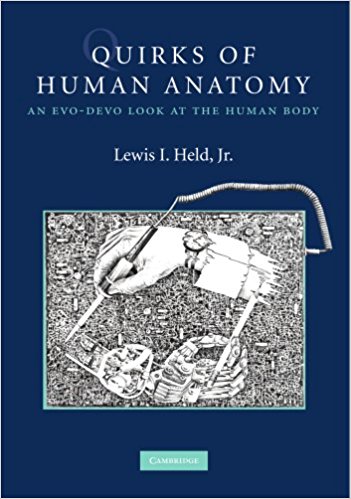
Quirks of Human Anatomy, by Lewis Held
Don't read this book if you're looking for some light reading. It's a dense romp through the world of evolution, genetics, development, and anatomy. The book explains the evolution of the eyes and how they are not the most effective design (click HERE to see an excellent pictoral explanation). He also discusses conjoined twins, vestigial organs, the asymmetrical internal organs, and so much more. The writing can be extremely dense (as evidenced by the thousands of references) but my favorite part were the pictures, which really helped to explain what each section was talking about. I was impressed by how much insight into the development of the human body can be discussed in such a short book. You'll definitely put it down at times and say "huh, I never really thought about that." He has an online companion to the book, which you can find HERE
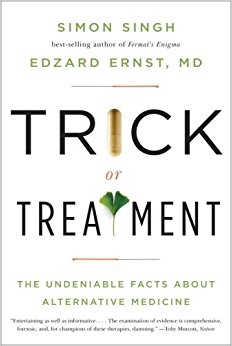
Trick or Treatment, by Simon Singh
Alternative medicine is a big problem. There have been many claims by proponents of alternative treatments that state they can cure many illnesses, without much evidence to back it up. Singh delves into the evidence that exists and determines the medical truth behind four different treatments: homeopathy, acupuncture, chiropractics, and herbal remedies. They discuss how some methods have more truth than others, but overall conventional medicine seems to provide the best treatment. I found this book to be well written and an informative read. His co-author, Dr. Edzard Ernst, is a professor of complementary medicine and has spent his life combing through the evidence both for and against alternative treatments, trying to bring as much of an unbiased approach as possible.
I've only been in the medical field for a couple years, but after speaking with patients and reading these sorts of books, I've developed my own thoughts on the subject. I don't give much weight to alternative treatments, the evidence is by and large against the majority of them. However, people are entitled to spend their money however they see fit. So if someone wants to spend their money on a chiropractor or acupuncturist, then that's their choice. Many of these treatments make people feel good, in the same way that a massage or watching your favorite movie might make you feel better. But people should pay for these treatments with the understanding that these treatments have not been medically validated, they will likely not cure their diseases, they have their own risks, and it may be cheaper to just get a massage and watch a movie.

The Healing of America, by T. R. Reid
America's health care system is extremely convoluted and chock full of issues. If you want to know about what's wrong with our system, and how we can fix it, "The Healing of America" is a great start. Journalist T. R. Reid takes us on a journey to countries around the world, including Britain, Germany, and Japan. Reid gives us two perspectives in his medically-oriented journey. One is a general look at each country's health care, examining both the benefits provided by each system, and the drawbacks that exist. The other view is personal, as he visits doctors in each country for an examination of his shoulder, so that he can compare each system on an individual level. I read this book last summer, and it really opened my eyes to the issues in America's healthcare, along with possible solutions based on the examples set by other countries.


Confessions of a Surgeon and The Cost of Cutting, by Paul Ruggieri MD
Reading these books early in my career as an attending made me feel seen, less embarassed, by many of the thoughts and concerns I have about myself and my patients on a daily basis. Dealing with complications, fighting with insurance, and reminding ourselves why this is still the best job are all covered within. These books are great for patients to understand their doctors' thoughts, and for doctors to understand their inner thoughts as well.

Zoobiquity, by Barbara Natterson-Horowitz and Kathryn Bowers
Medical doctors take care of humans, and veterinarians take care of non-human animals; often, they both take care of the same diseases, but in different ways. "Zoobiquity" discusses this disparity, and offers ideas on how both physicians and vets can benefit from each others' knowledge. The book covers many different conditions, such as cancer, heart disease, and even eating disorders. The authors show how many of these issues appear throughout the animal kingdom, and there are often other ways that physicians can treat their patients. Many of the ideas come from in-process research that may or may not yield actual results, but they do provoke a lot of thought. "Zoobiquity" shows that humans are not unique in their medical conditions.
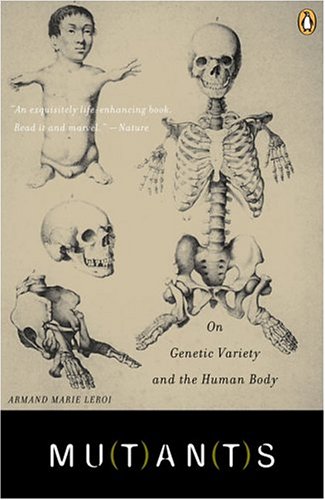
Mutants, by Armand Leroi
Many genes work in unison to produce a human body, but these genes can often mutate, causing drastic changes. In this book, Leroi takes a look at individuals who might be considered "mutants," explaining how studying mutations can help us understand how the human body properly functions. He discusses the way the embryo produces a left and right side, and what happens when those genes fail. There is a section on the reproductive system, and what might cause an individual to seemingly switch from one sex to the other. Leroi also mentions gigantism, conjoined twins, and many other mutations. Part of what makes the book enjoyable is that each topic is discussed respectfully, the antithesis to the circus exhibits of the past. It is a very intriguing read, and will make you appreciate the inner workings of our genetic code.

The Medicine Cabinet of Curiosities, by Nick Bakalar
Medicine is full of strange things: strange disorders, strange anecdotes, and strange facts in general. Mr. Bakalar has compiled endless amounts of medical knowledge into this book, which will keep you both entertained and enthralled by the world of medicine. He gives a view of medical history, along with information about medical conditions (including some interesting pictures of historical treatments). My personal favorite section is the complete elemental breakdown of the human body: how much radium does your body actually contain? When you read this book, you will be sure to learn something new about the world of medicine.

How Doctors Think, by Jerome Groopman
As a physician, this is an important book to read, to understand the potential flaws and pitfalls in my thinking and decision-making. It's also important for patients, to understand that doctors are human and how erros can be made. The book covers a number of topics, from discussions of death to the influences of industry (topics that have their own separate books on this page). But I think the book provides a reminder of why it's called the "practice of medicine," because we are ever-changing and improving our methods of patient care. Definitely a book worth revisiting.
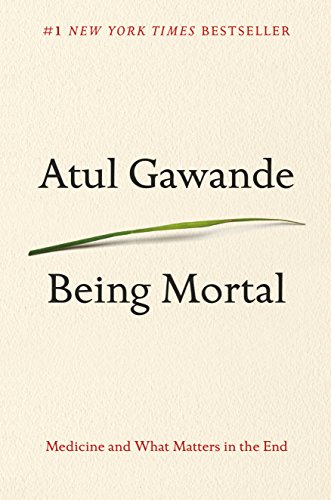
Being Mortal, by Atul Gawande
I wasn't a huge fan of Gawande's before this book, but I appreciate the hole it fills. There is a lack of understanding in both society and the medical profession regarding end-of-life discussions and care. I see this frequently, and it can lead to patient harm. This book emphasizes the need to have these discussions, and need to realize that sometimes, less care is more. Talking about death is not easy, but it is important.

The Body: A Guide for Occupants, by Bill Bryson
I love anything and everything by Bill Bryson. Although I spend every day taking care of the body, this book is a refreshing and fascinating look at the inner workings of our bodies. He tells the stories in an informational and engaging way that will give you a newfound appreciation for your inner workings.

Patients at Risk, by Niran Al-Agba and Rebekah Bernard
As a physician, the multidisciplinary care approach is key to patient care. I cannot do everything myself, and having a team is integral. Physician assistants and nurse practitioners can play an important role in patient care, extending the reach and coverage in a world with ever-growing medical needs. Unfortunately, there are concerns that these midlevel providers are overreaching their boundaries, which is being encouraged by some who feel this is a way to make the medical system more profitable. "Patients at Risk" helps to lay bare the facts and dispel many of the myths behind physician-led care and the concerns regarding midlevel encroachment. Highly recommend to everyone, whether a medical professional or patient.

Emperor of All Maladies, by Siddhartha Mukherjee
Screw cancer. This book looks at the trials and tribulations in the evolution of cancer understanding and treatments. The focus is mainly on chemotherapies, but the book also looks at how the fields of surgery and radiation oncology have evolved as well. The book examines cancer from many angles, including looking at individuals both in and outside the field of medicine, and how the story of cancer is one that is at times extremely personal and heart-wrenching.
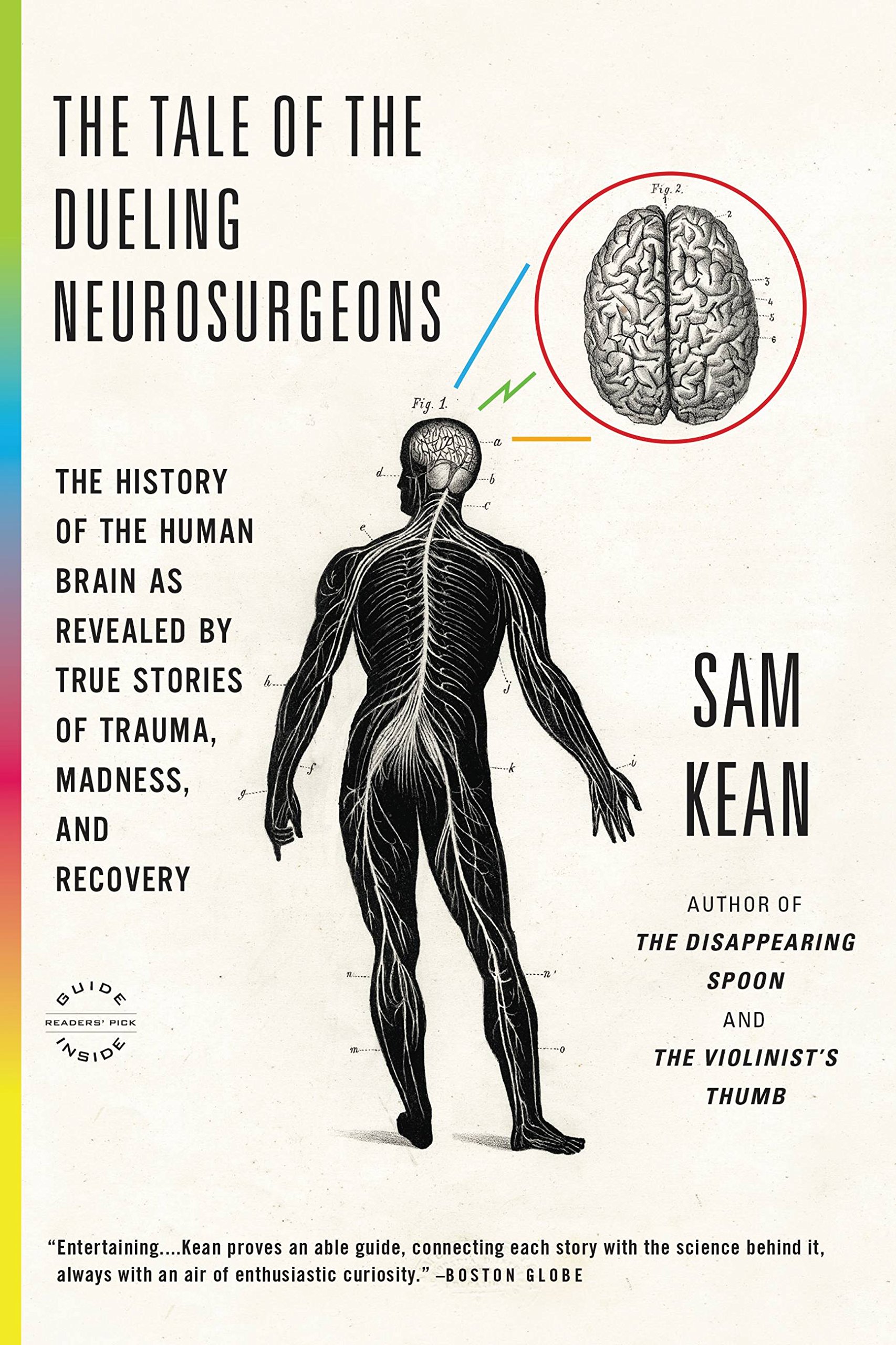
The Tale of the Dueling Neurosurgeons, by Sam Kean
Urology and neurology are practically at opposite ends of the body, but it's still fun and fascinating to learn about the brain, and Sam Kean is an excellent writer. Different parts of the brain are explained through fascinating anecdotes. Definitely the one that sticks with me is the chapter about the Garfield and McKinley assassinations. One of the coolest brain books you'll read.

Doctors: The Biography of Medicine, by Sherwin Nuland
The story of medicine told through the lens of different paradigm-shifting physicians throughout history. Dr. Nuland paints an honest and detailed picture of their lives, their discoveries, and their impacts. He also connects the history to present-day medicine and shows how far we've come. He holds no punches and doesn't hide the flaws. This book was an inspiration and a reminder of why I (and many others in medicine) have chosen this career path.


























